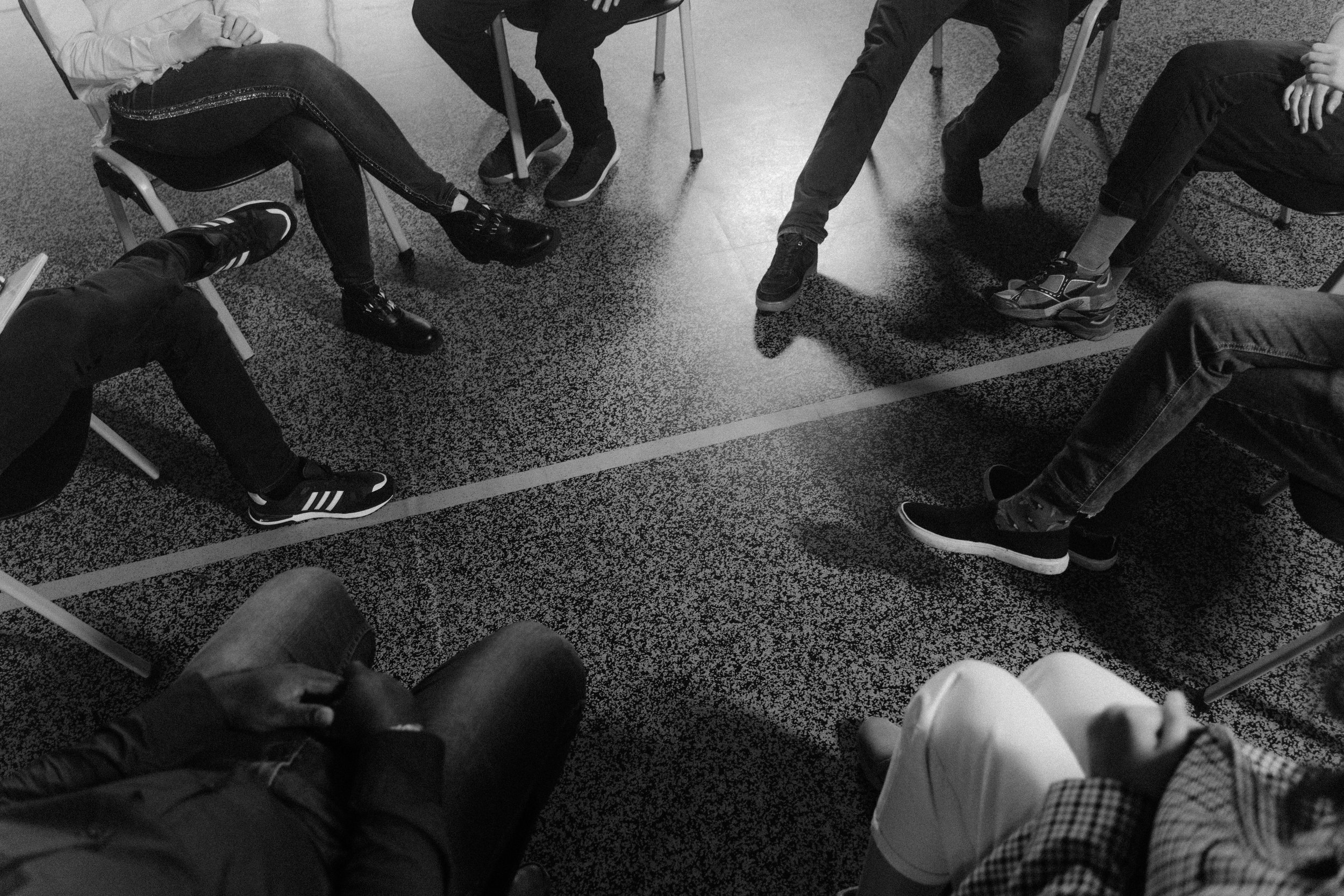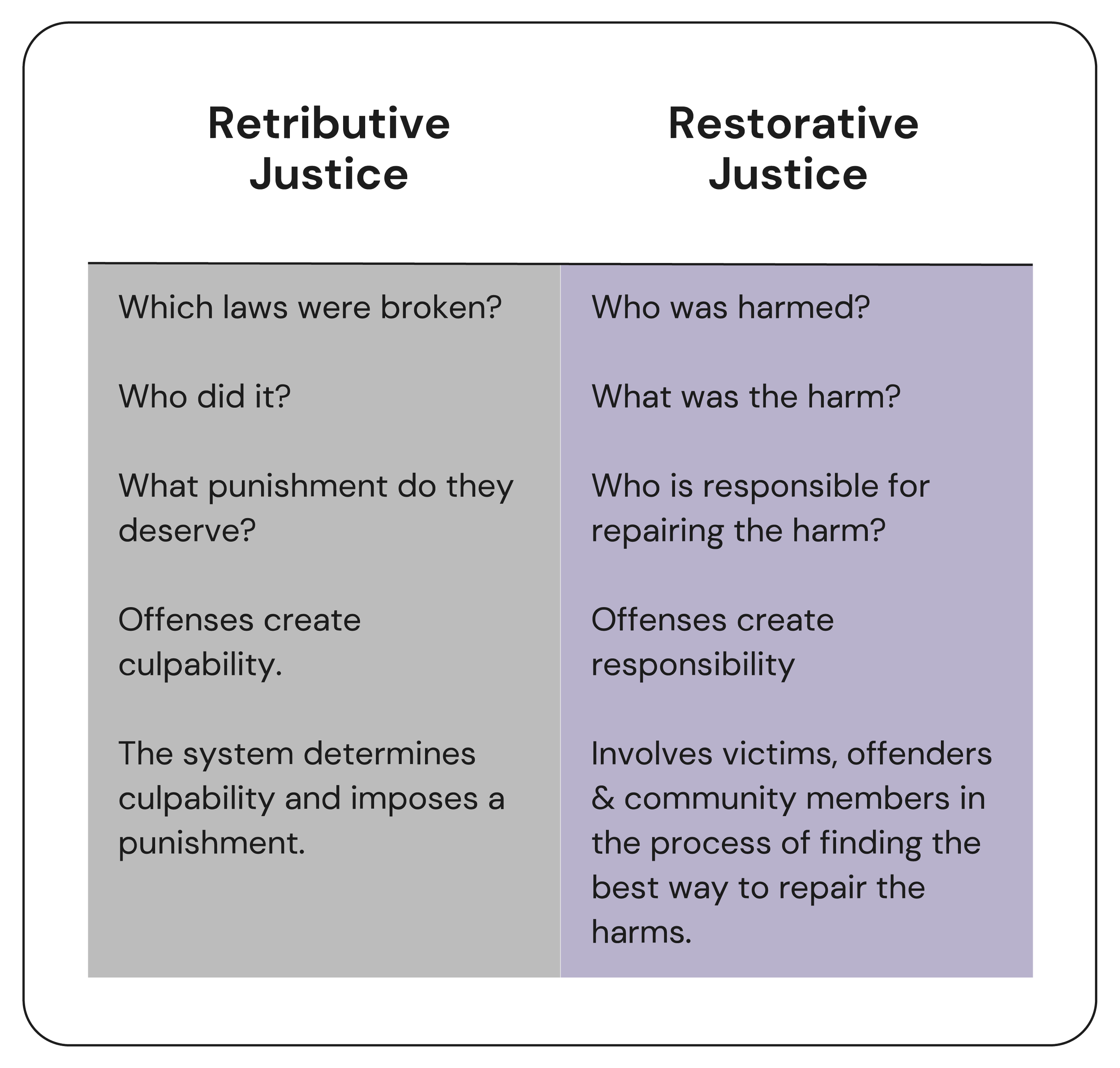Restorative Justice is a philosophy and approach that views crime and conflict as harm done to people and relationships.
Restorative Justice is a non-adversarial, non-retributive approach to justice that focuses on repairing the harm, while engaging individuals and community members in the process. The goal of Restorative Justice is to reach meaningful and fair outcomes through inclusion, open communication, and truth.
Understanding Restorative Justice
Comparing Retributive & Restorative Justice
Key Values
Practices and programs reflecting restorative purposes are characterized by four key values
01
Encounter
Create opportunities for those who were harmed, caused harm, their families, and community members who want to meet and discuss the harm and its impact.
02
Amends
Finding ways to make things as right as possible.
03
Reintegration
Seeking to reintegrate all parties involved in a harm back into the community.
04
Inclusion
Providing an opportunity for all parties to have a voice in the process.
Forms of Restorative Justice
Restorative Justice can take the form of various programs and practices such as Victim Offender Dialogue, Community Conferencing and Circles. Explore our Programs & Services pages to see what RJMP has to offer.



